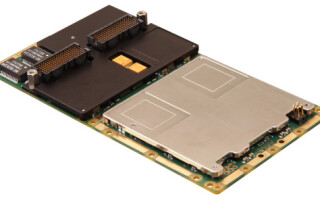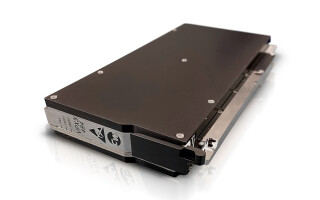Curtiss-Wright
Suite 200
Ashburn, Virginia 20147 [email protected]
https://www.curtisswrightds.com/

Multi-INT and SOSA: A consideration of next steps - Story
October 18, 2022Multiple intelligence (Multi-INT), sometimes referred to as multi modality, is a popular term used in recent years to describe C5ISR [command, control, computers, communications, cyber, intelligence, surveillance, and reconnaissance] applications in which data obtained from disparate sensing sources is fused together to derive new information and operational insights. In some cases, this can mean the fusion of SIGINT [signals intelligence] data and radar data, or SIGINT data with EW [electronic warfare] data and EO/IR [electro-optical/infrared] data. In other cases, it may mean combining real-time data with post-mission analysis from previously processed data. Additionally, there are approaches where artificial intelligence (AI) and machine learning (ML) assist via data and information analysis to identify patterns or predict outcomes.
Reducing SWaP in the field with a USB-based hardware security module - Story
October 17, 2022Digital keys are a core concept in establishing secure networks, one as relevant in a data center application as it is at the edge of the tactical battlefield. While cryptography (crypto) uses both symmetric and asymmetric keys for different functions, for this column we’ll focus on asymmetric cryptography in which different keys are used for locking and unlocking.
Flight recorders comply with regulations, with no change to airframe - News
September 21, 2022ASHBURN, Va. Curtiss-Wright Defense Solutions offers a 25-hour flight data recorder (FDR) and cockpit voice recorder (CVR) designed for use on military fixed-wing and rotor aircraft, many times with no need to alter the airframe.
Embedded Security IP module from Curtiss-Wright gets nod from system integrator - News
September 14, 2022ASHBURN, Va. Curtiss-Wright Defense Solutions has been chosen by a leading defense system integrator to provide its embedded Security IP module technology, supplying its XMC-528 mezzanine card to add security protection to an existing system within a Department of Defense (DoD) end-state application.
DAS or NAS? Making the right data-storage decision for deployed systems - Story
September 09, 2022For many years, military-system designers relied solely on direct attached storage (DAS) devices when they needed to deploy data storage on military platforms. These devices are embedded within or directly attached to the computers, such as single-board computers (SBC) on a platform. When a DAS device is used, only the specific SBC it’s attached to can access the stored data-at-rest (DAR). With Ethernet becoming commonplace on modern platforms, network attached storage (NAS) devices (also known as network file servers [NFS]) have emerged as an important alternative for deployed data storage. With NAS, stored DAR can be made available to any client devices on the Ethernet network. NAS and DAS are often used in combination to meet all program, platform, and application requirements. However, in those cases where it makes sense to use only a DAS or a NAS device, it’s useful to understand how they differ.
Unified network communications management: the next step to realizing MOSA - Story
July 26, 2022The vision of hardware interoperability at the tactical edge, from air platforms to ground vehicles to base stations, is now being realized. Because MOSA [modular open systems approach] is an approach and not itself a standard, solutions that support this vision can be achieved through many different means as long as interfaces and communications protocols are based on open standards. There remains a key area to address, though, to achieve seamless interoperability between heterogeneous systems. Consider, for example, the Sensor Open Systems Architecture (SOSA) Technical Standard: While most aspects of sensor processing system architectures are well-defined within SOSA, one area that has not been rigidly defined is the network configuration and operational environment of individual cards and modules.
Rightsizing processor performance for today’s DSP applications - Story
July 22, 2022For rugged DSP [digital signal processing] processor cards, it is important to have a balance between processor performance, memory bandwidth, I/O bandwidth, and ruggedization. Deficiencies in any of these attributes will limit the achievable performance. Due to limited real estate available on 3U OpenVPX boards, designers and users must make tradeoffs on which dimensions to maximize and/or minimize.













